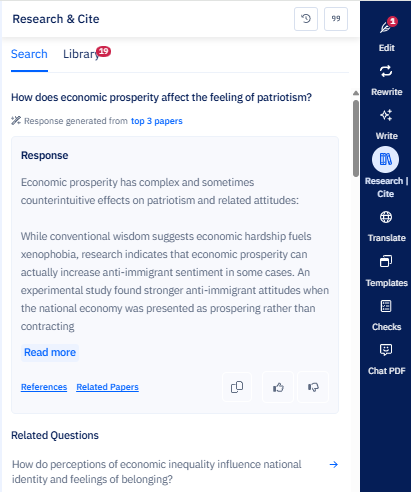Table of Contents
Writing in humanities and sociology requires a unique approach that goes beyond traditional research papers. These academic disciplines are vital to understanding our progressing world, which makes it essential to convey your research in a clear, easy-to-understand way. While the goal remains to communicate your findings effectively, the writing style, structure, and presentation differ significantly from those of other disciplines.
To do this, researchers must possess a firm grasp of the subject’s nuances and be aware of how audiences view the world and evaluate information. In this article, we provide valuable tips specially tailored for researchers writing in humanities and sociology, enabling them to produce precise, compelling, and impactful research papers with the best chances of publication.
Understand the essence of academic writing in humanities
Academic writing in humanities and sociology involves exploring complex human experiences, societal structures, and cultural phenomena. It demands a nuanced approach, encouraging researchers to embrace diverse perspectives and demonstrate critical thinking. Keep the following points in mind:
- Develop a clear research question: Frame your research question carefully to guide your exploration and keep your writing focused.
- Engage with existing literature: Thoroughly review relevant literature to contextualize your research and build a strong theoretical foundation. Use Paperpal’s Research feature to find existing literature on your research topic, and chat with the PDFs to boost reading comprehension.
3. Humanize your research: Use storytelling and real-life examples to connect with readers emotionally and make your work relatable.
Craft a cohesive structure for your humanities research paper
Academic writing in humanities and sociology requires a well-organized structure. You can refer to the example of the humanities research paper to structure your work clearly and coherently.
- The introduction section: The introduction of your humanities research paper should present your research question and its significance, provide a brief overview of the existing literature and its gaps, and state your thesis statement clearly.
- Comprehensive literature review: This is an essential step in any research journey. Summarize key works related to your research topic, identify the common themes and controversies, and highlight the relevance of your research in filling the existing gaps.
- Research methodology: Describe your research approach and methods, justify why these methods are suitable for your study, and address potential limitations in your humanities research paper.
- Findings of the study: Present your research findings systematically, use relevant evidence and examples to support your arguments, and clearly connect your findings to the research question.
- The discussion section: Interpret your results and explain their implications, compare your findings with existing literature, and address any limitations and suggest future research directions. Be sure not to repeat the results in this section.
- A neat conclusion: Recapitulate the main points of your paper, emphasize the importance of your research and its contributions, and leave the reader with a thought-provoking final statement.
Starting with a blank page? Upload your notes or just type ‘/’ on Paperpal’s Web Editor to get contextually relevant text suggestions and start writing your humanities research paper.
Humanities research paper style and language
When writing in humanities and sociology, the writing style should be engaging yet maintain academic rigor. Here are some essential tips:
- Choose clarity over complexity: Use straightforward language and sentence structures to ensure your humanities research paper can be read and understood by global audiences. Use Paperpal’s language suggestions to avoid technical jargon and convoluted expressions that may confuse the reader.
- Favor conciseness: Be concise in your writing, focusing on conveying your message without unnecessary wordiness. Try to use crisp, short sentences or visuals (infographics, graphs, charts, etc.) to communicate complex themes clearly.
- Ensure smooth transitions: Employ transitional phrases to create seamless connections between paragraphs and ideas.
Also Read: Writing in Humanities: Do’s and Don’ts for Researchers
Citing sources and referencing correctly
Properly citing sources is crucial when writing in humanities and sociology to acknowledge the contributions of other researchers and strengthen the credibility of your work. Follow the citation style recommended by your institution or journal (e.g., APA, MLA, Chicago). Use Paperpal’s free citation generator to auto-cite references and generate accurate citations in 10,000+ styles. Double-check to ensure all in-text citations are correct and complete and that you’ve provided a comprehensive bibliography or reference list at the end of your paper.
To conclude, knowing how to write a good humanities research paper requires you to achieve a delicate balance of creativity, critical thinking, and adherence to academic conventions. By following the steps outlined in this article, researchers can elevate their writing and make a lasting impact in their field of study. Be sure to read the critical dos and don’ts when writing in humanities to create a compelling humanities research paper, open the door to new avenues of exploration, and enrich scholarly discourse.
Paperpal is a comprehensive AI writing toolkit that helps students and researchers achieve 2x the writing in half the time. It leverages 22+ years of STM experience and insights from millions of research articles to provide in-depth academic writing, language editing, and submission readiness support to help you write better and faster.
Get accurate academic translations, rewriting support, grammar checks, vocabulary suggestions, and generative AI assistance that delivers human precision at machine speed. Try for free or upgrade to Paperpal Prime starting at US$25 a month to access premium features, including consistency, plagiarism, and 30+ submission readiness checks to help you succeed.
Experience the future of academic writing – Sign up to Paperpal and start writing for free!






